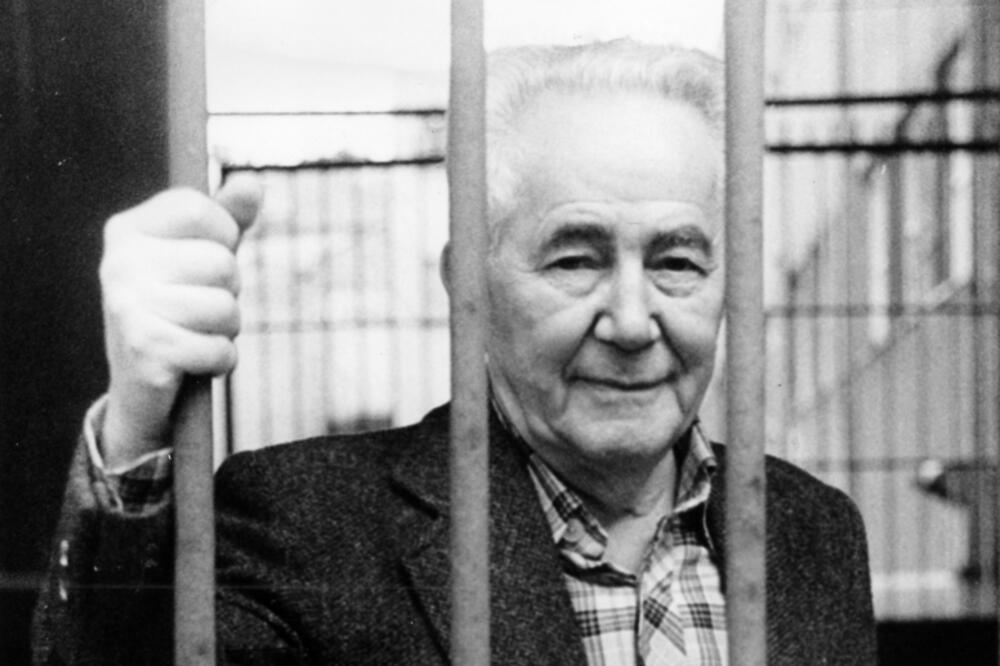It is noticeable that in his narration, Đilas constantly sifts through mentality, and in this sifting he will stop several times precisely at those places where the manifestations of mentality are shown, the causes and psychological motivation of which often resist rational understanding, which are essentially the hubs where threatened by the most intriguing characterological phenomena. Just as this incomprehensibility breaks through the themes of blood revenge and the sheer anarchy of some communities, so in the description of the brutal pohara, carried out on the Muslims of Sandjak, some irrational drivers are shown that drove people to wanton robberies and violence: "Like madness, like a fire that took over the entire landscape. Everything rose up, young and old, women, even children, to rob the Muslims in Sandzak."
The inexplicable presence in this rampage of many who were expected to do so, even those who initially deterred and prevented others from looting, leads Đilas to the conclusion that this senselessness is driven by something much greater than mere charisma: "Everyone knew that it was a sin to go to robbery. But almost everyone went, as if they were afraid of missing something big and fateful. It was like a national migration or a religious ecstasy... People also came from other regions, from the end of Montenegro, as if they were drawn by some irresistible premonition or an intoxicating smell." And here Đilas will draw a drastic conclusion on the trail of the one: "They carried it in themselves, it was only necessary for the restraints to loosen", with which he summarized the story of unmotivated evil during the Austrian occupation. Although in the case of the Sandzak pohara, he cites reasons that could have triggered revanchism against Muslims, such as their cooperation with the Austrian occupier or their mutual past of robbery, Đilas will conclude: "But this robbery would have taken place even without all that."
With these drastic attitudes, in which evil is treated as an ontological category, Đilas, among other things, wanted to show how persistently those uncorrected drives, the syntagm of which "foolishness" is a synonym, lurk beneath the apparently insufficiently solid membrane of tribal ethics. From the previous quote, it could be concluded that they are the result of some magical-ritual experience of the world, which in the consciousness of Montenegrins, formed in their always dramatic relationship with the environment, also knows how to be present. Hence the rapture and fatalism that Đilas detects in these examples, in which events generally take place without causality and motivation and which cannot be rationally explained. That's why all those raids, raids and robberies in the Landless Land look more like some dark rituals, which seem to be triggered by something chthonic and primordial. This subterranean call is also recognized in the implied ancestral vow in Đilas's observations about the cult of blood revenge, and when there is such an intensity of attachment to the ancestors - what Đilas defines as "imperishable blood", it is a logical sequence in the event that this imperishable blood is "spread ". That almost agonizing feeling knew how to ignite the fiercest flame in the chests of Montenegrins, the one that "burns" both reason and compassion.
Already in his childhood, Đilas will meet this dark passion, when he finds himself in the firm embrace of his uncle Mirko, who will leave him a heavy bequest from his deathbed, not for a moment thinking that the fulfillment of that bequest could have disastrous consequences for his nephew's life: "You will avenge me! You will learn the schools, but you will avenge me. As you know, just remember - avenge me, the country will be easier for me."
Nevertheless, in the period immediately after the loss of Montenegrin statehood, there will be many more of those whose reasons for resistance had a rational basis, although their motives were often different: "...there were supporters of King Nikola, that is, those who wished for an independent Montenegro ; there were, on the other hand, those who did not like the way in which the Unification was carried out - as by occupation, and there were simply many dissatisfied peasants, people who were uprooted by the war from earlier conditions and relationships, so they leaned towards the former, because they did not know What else is going to happen." However, what made that disturbance even more dark was hidden in the fact that the occupiers are now brothers and what's worse - the brothers' revenge fantasy will prove to be even more terrifying than the Ottoman one. Đilas reveals some examples of cruel confrontations between their own and their own during the period of the Austro-Hungarian occupation, and among them the monstrous executions of women who, mostly forced by poverty, helped the occupier or were in some kind of emotional relationship with one of the members of the Austrian army stand out. A widow, "with small and hungry children", who betrayed Manojlo Mišnić to the Comita, his comrades will tear out her tongue before killing her, and a famous beauty, who was having fun with an Austrian, was stripped naked by the villagers and crucified naked at the crossroads. This second event caused outrage among people, but only because of the method: "Where did such a thing come from in our Montenegro? They usually say this: They should have been thrown under a pile or on a rope, not ..."
Bonus video:





